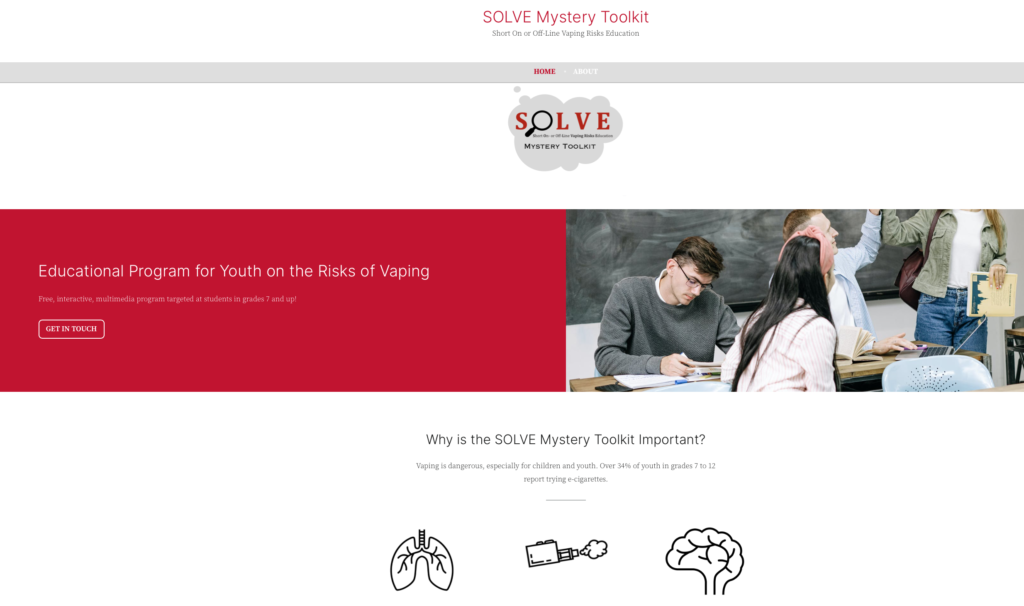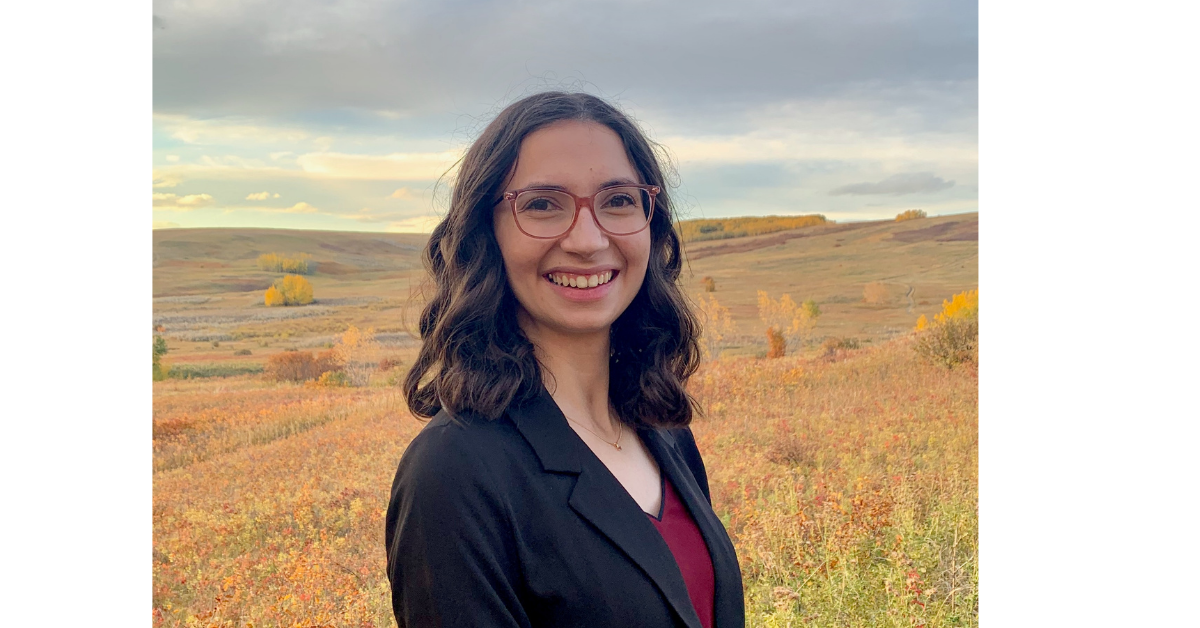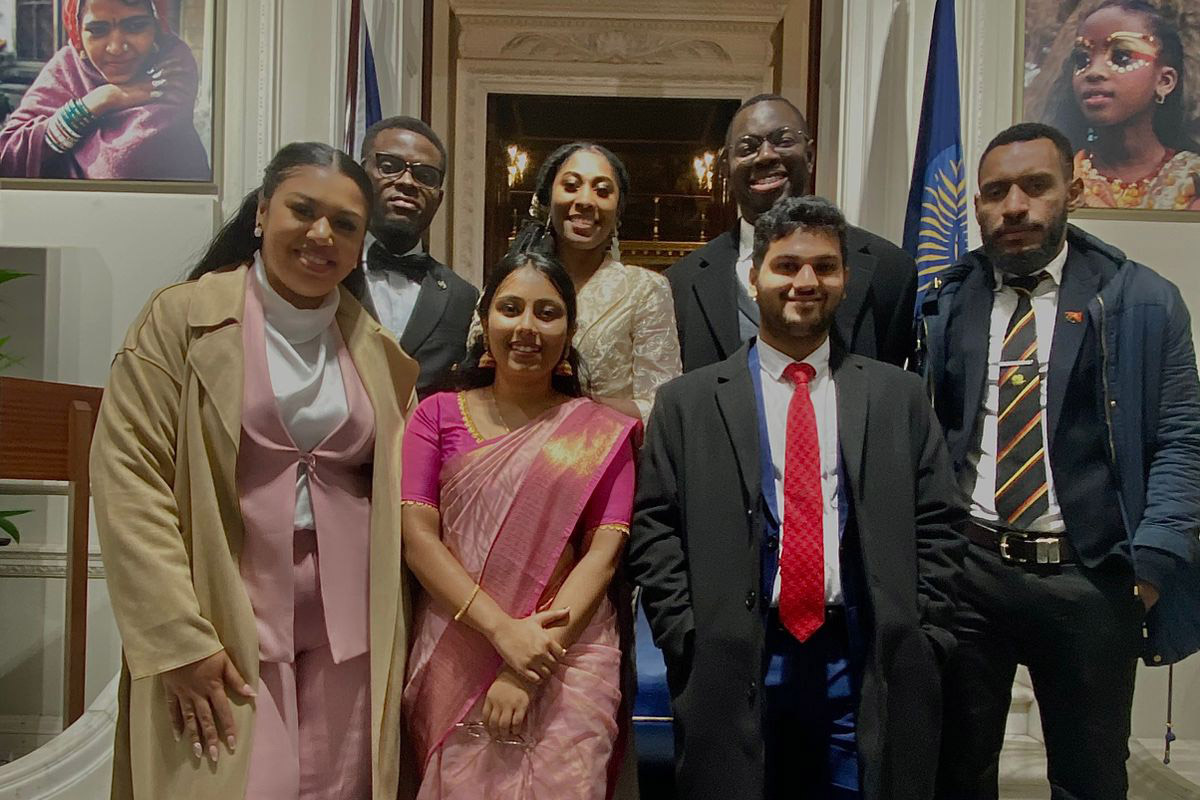Striving not to be a success but rather to be of value
April 8
Asha Hollis is the creator of the ‘SOLVE Mystery Toolkit’ which is a free, ready-to-use programme for middle school teachers to educate their students on the risks of vaping and to help students make safer choices. The toolkit has been used by over 3000 students across North America and has been licensed to the Heart and Stroke Foundation of Canada, with an updated version (HeartSmartSOLVE) for Canadian students launched in January 2022. Asha has also led the development and adoption of the University of Calgary’s ‘Global Access to Medicines Guidelines’, enabling access to more affordable medicine in low-income countries. She was interviewed about her initiative by Ela Meiring, an 18-year-old Commonwealth Correspondent from South Africa.
I remember doing an assignment in 2020 about whether vaping is better than cigarettes or vice versa. I was astonished when I interviewed my peers and they all agreed vaping or e-cigarettes is the way to go. Although many people believe that vaping is a healthier alternative to smoking, it also has plenty of consequences, especially for the youth. According to the Heart and Stroke Foundation, vaping has been linked to respiratory disease, nicotine addiction, damage to the developing brain, and may be a gateway to tobacco use.
This brings us to the work of Asha Hollis, a remarkable young woman who is one of the 20 Commonwealth Youth Awards finalists. She is the creator and co-developer of the ‘SOLVE Mystery Toolkit’ which has taught youth in North America about the risks of vaping through an interactive activity. An adapted version of the ‘SOLVE Mystery Toolkit’ called HeartSmartTMSOLVE was also recently launched by the Heart and Stroke Foundation of Canada. With her initiative, Asha strives to help achieve Sustainable Development Goal (SDG) 3 – Good Health and Well-being.
Tell us a bit about your upbringing.
I grew up in Calgary, Canada, in a mixed-race household, which helped me to understand and appreciate the value of different perspectives and lived experiences. I also grew up surrounded by music, playing the violin from an early age. I still play in a quartet and an orchestra.
Why did you want to go into the medical field?
Medicine offers a unique opportunity to connect with people from diverse backgrounds and to support them through an often challenging time in their life. Medicine is also a team activity; you get to work with and learn from many people with different skills and experiences. I am very thankful to be part of this.
Who or what inspired you to create the “SOLVE Mystery Toolkit”?
I have been engaged in advocacy to protect youth from smoking and vaping, and when talking to teenagers, I am always surprised that many do not know vaping is harmful. I realized that there was a significant gap in the available resources being used in schools, and wanted to create something that could impact students right now and empower them to make healthy choices. I am thankful to have worked with a phenomenal team on turning this vision into a successful and free interactive program that has already been used to teach over 3000 students across North America about the risks of vaping. The feedback our team has received from students saying the program made them less likely to try vaping has been the most rewarding part!

How were you able to work with the University of Calgary to adopt a set of guidelines in 2019 to make medical inventions more affordable across the globe?
Over several years, I had the support of many great mentors and collaborators at the university who are passionate about improving access to medicines. Through my interaction with one of these leaders, we were able to develop and write guidelines in a way that was responsive to the needs of both innovators and potential patients. I then collaborated directly with our university’s technology transfer office, InnovateCalgary, to implement the guidelines on access to medicines. The Global Access to Medicines Guidelines have now been in place for over two years to promote accessibility and affordability of medicines in low-income countries!
What are your plans for the future?
I am excited to be graduating from medical school soon, and I hope to carry my commitment to advocacy forward as a physician, not only on behalf of individual patients but also through effecting policy changes.
Is there any advice you would like to share with readers?
One approach I have found is to look for a place where there is an intersection between the needs of others and your passions and abilities, where you can enact change with a diverse team of committed individuals.
Like a rainbow, Asha unintentionally leaves splashes of colour in a black and white world. She was not born to fit in, she was created to stand out. As she endeavours to help make the world a better place for us to live in, her words affirm that you, too, can strive not just to be a success, but someone of value.
Photo Credits: The Commonwealth/ Asha Hollis
About Ela Meiring: I’ve always loved writing, my best exam grades always came from essay writing. I also love children and want to give them the best start in life. Because of this, I am currently studying for my Bachelor’s degree in Foundation Phase Education at STADIO. I enjoy challenges and recently wrote an essay for the Queen’s Commonwealth Essay Competition for which I won a silver award.






